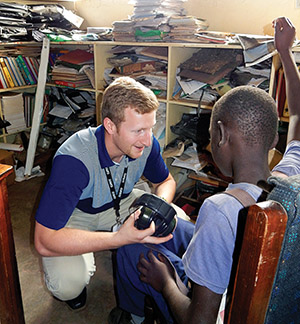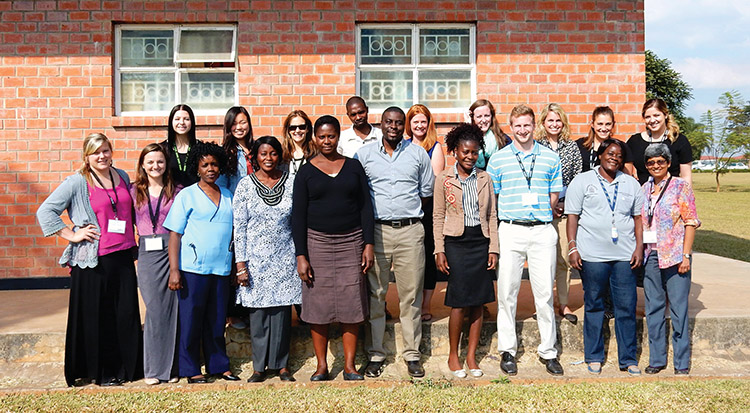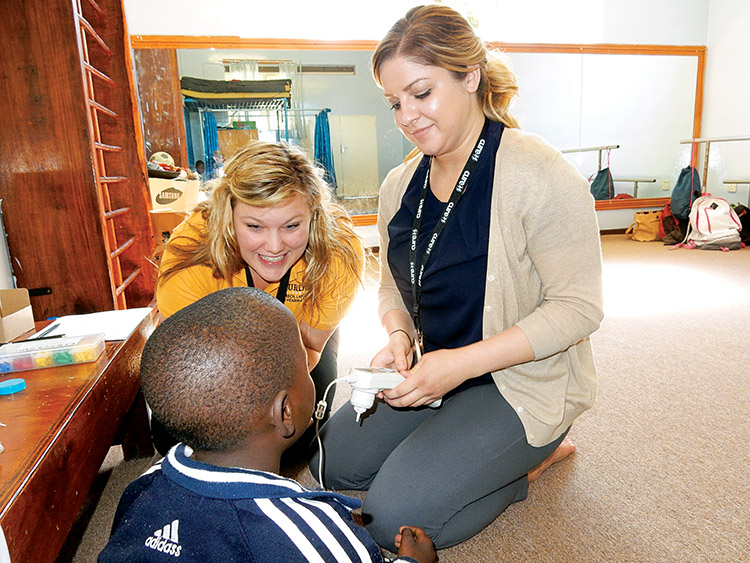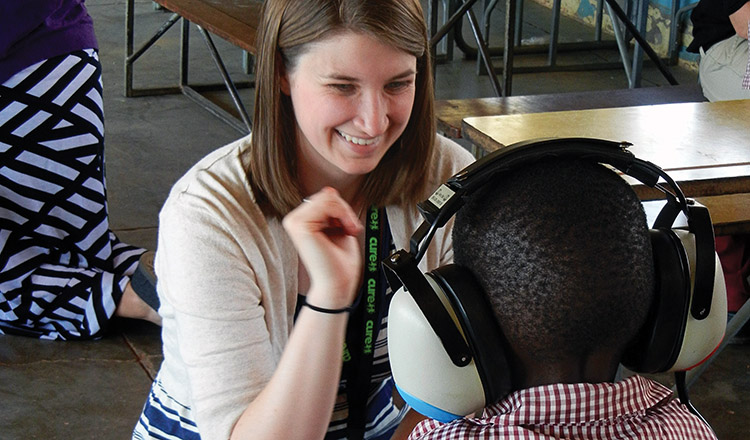For Breanne Lawler (HHS’12), a Purdue student working toward her doctorate in audiology, the moment that confirmed her place in her chosen profession came in Lusaka, Zambia, as she and other students from the department provided hearing assessments for Zambian children and adults.
A woman who was experiencing difficulties with her hearing walked more than an hour to the hospital where the group of Purdue students were performing assessments.

“She was found to have sensorineural hearing loss, and I was given the opportunity to fit her with a hearing aid,” says Lawler, who is on track to earn her final degree in May 2016. “When I placed the hearing aid, she began to cry and thank me over and over. She was so excited to hear the music in church and communicate with her family again. I’d never experienced such sincere gratitude. It was a moment I’ll never forget. It was one of those moments that remind you why the eight long years of school are well worth it.”
Professors in the Department of Speech, Language, and Hearing Sciences who shepherd the trip-goers each year and prepare the students well in advance of having their passports stamped say Lawler’s experience is typical of those who join the two-week training trip each summer. It allows both undergraduate and graduate students to do hands-on work in the field, exposes them to a different culture, broadens their horizons, and better prepares them to serve the populace as they move toward graduation.
Partnering for care
The idea for an audiology-focused study abroad trip began several years ago when a student mentioned a wish to be able to do an overseas experience in the field. Lata Krishnan, clinical professor of audiology, worked with Dr. Alfred Mwamba (HHS’04), the only audiologist in Zambia, to allow students to join staff at the nonprofit Beit Cure Hospital. Today, the trip focuses on speech-language and hearing and partnerships with Beit Cure and other community partner organizations within the country in the southern half of Africa.
Krishnan says the trip changes annually depending on the needs of those with whom the department partners. “We didn’t go there with any idea of how we were going to help the people in Zambia,” she says. “Everything we do relates to things they have requested or they have told us they need.”
Christi Masters, clinical assistant professor of speech-language pathology, says that in addition to administering hearing screening tests that identify if a person is experiencing hearing problems or delays, students assist in speech therapy and professional development trainings for workers who will be providing speech therapy.
Between nine and 12 students typically go on the trip each year, and although they are only on site for a couple of weeks, Krishnan says the students are able to provide some help to the community in their limited time.
“At one point we saw 105 children in a day,” she says. “If they do not pass, they go to the hospital to see Dr. Mwamba. Our being there increases the reach that they have.”

A new awareness
Typical clinical days may be eight hours or more at the hospital or splitting time between the hospital and an orphanage. Students bring sack lunches and eat on site, often with local staffers who they say teach them much about the environment and their profession. In Zambia, English is the official language so communication isn’t impossible, but the many other languages spoken by villagers do require interpreters to assist with some patients.
Both Lawler and Katie Courtaney, who will graduate with her master’s in 2017, said working in Zambia opened their eyes to their own privilege back in the United States. Equipment is usually available and in working order stateside, and patients have access to a greater number of providers and locations for screenings.
“Zambian and American cultures are quite different, but I found that we all have very similar desires,” says Courtaney. “Parents want to help their children be as healthy as possible, but it was heartbreaking to see the need in Zambia. Many of the kids we interacted with had never had a hearing screening up to that point. I am thankful for the standards and practices set here in the US that strive to equip people who have a hearing loss or speech delay at a very young age.”
Masters says after three years of the program, standardized cultural competency testing that participants take before and after the trips proves that the experience is changing the attitudes of students and enriching their educations.
“It helps guide their careers,” says Masters. “They don’t have many opportunities to interact with a culturally diverse population during school. Eventually in clinics and schools, their practices will be very diverse, so to be an effective clinician, they need this exposure.”


